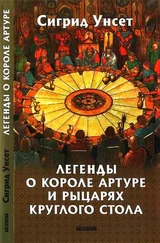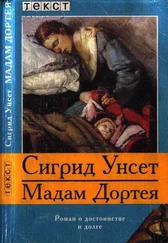He showed them a video made by the World Health Organization. Cole joined in when some other kids started booing at scenes showing rabbits and monkeys being used as test animals. But there was applause again when men dressed in hazmat suits were shown slaughtering chickens.
Cole thought he hadn’t heard right. Every single chicken in Hong Kong? More than a million chickens. Cole didn’t believe the men could possibly have got every single chicken. Some chickens, surely, must have escaped. He could see them escaping. He could see people hiding their chickens. (Chickens? What chickens? Ain’t nobody here but us humans.) He didn’t like watching the chickens get killed, but the next scene—in which it was pigs that were being killed—bothered him a lot more. Cole liked pigs.
He looked away from the screen for a few moments, careful to make the act appear casual so he wouldn’t seem wussy. When he looked back, the pigs had been succeeded by various people caught picking their noses in public. Squeals of laughter or disgust. Shrieks of “Vomitous! Vomitous!”
Nose picking was one of the main ways flu germs got spread.
Cole’s attention soon wandered again, and when it returned, a woman with black hair pulled back in a large bun—like the head of a smaller, darker person hiding behind her—was speaking. She was one of those people, like the Bosnian woman who worked in the school library, who puzzled Cole by speaking English with a strong accent but without making any mistakes.
“People must learn that shaking another person’s hand is not a friendly thing to do. It is not a friendly thing to put other people at risk for infectious diseases.”
She and several other people were shown demonstrating the elbow bump, and the auditorium got raucous again.
“We must also consider limiting the use of coins and paper money. For this, too, may cause diseases to spread. We must use technology and human ingenuity to develop ways so that, in their daily public transactions, people touch one another as little as possible. Ideally, we also want to touch as few buttons and handles and knobs as possible.”
When the video ended, the man talked about some new products on the market that were supposed to protect against germs. Probably none of them would stop a person from getting the flu, he said, but at least they were good for a laugh.
He held up a belt with a short pole sticking out of it and a small red flag attached to the pole. “The latest thing in New York.” He buckled on the belt, then sashayed across the stage. The pole swung from side to side—the flag was supposed to smack anybody who got too close.
Back at the lectern, after everyone had calmed down, the man showed them the other products. There was an air purifier you could wear around your neck, and what looked like an oven mitt for when you had to hold on to a bus or subway pole or push a shopping cart. There was a device you could install on a door and set to spray disinfectant a few seconds after the doorknob had been touched.
One thing the man did not show but which everyone was used to seeing by now was a T-shirt with an image of a handshake in a red circle with a red diagonal slash.
Cole’s father had a T-shirt that said “Human Race, Get Out of My Face.” Every time he wore it he and Cole’s mother would argue about it. (“It’s a joke , Serena.” “A so not funny one, Miles.”)
Back in the classroom, everyone groaned when the teacher announced that for homework that weekend they had to write a research report on—what else?
It was just like Ms. Mark not to have told them this before so that maybe they could have paid more attention. Maybe even taken notes? It was also just like her to give such a lame assignment. As if influenza hadn’t just been done to death. But that’s what happens in school: you begin with something interesting—say, even mad interesting—something you’re glad to know about, and then somehow it gets turned into something you never want to hear about again for the rest of your life. It was part of the mystery of teachers in general, as if they just couldn’t get how kids’ brains worked. As if every group of students were the first kids they’d ever met. As if boys in particular were a brand-new alien species, every class, every time.
Ms. Mark had a deep, throaty voice and a distinct bulge in her neck, which had inspired the rumor that she had been born (a hundred years ago) male. She had gone into full-frontal freak when she discovered (and she must have been the last person on earth) what it meant when kids—boys—called a girl a PB.
Beautiful, wicked-hot girls were apocalyptic. At the other end were the ones known as partial births.
“I know most of you probably don’t even know what those words mean.”
Was she kidding ?
They were supposed to go to the library instead of just searching the Internet, but Cole knew this was plain dumb.
“W.H.O. Officials Call Pandemic ‘Inevitable.’”
“Study Shows U.S. Ill-Equipped for Major Pandemic.”
“Dysfunctional Health Care System Would Doom Millions, Doctors Say.”
“A Catastrophe Worse Than Hurricane Katrina, Some Experts Fear.”
Cole clicked and clicked. There were thousands of articles, more than anyone could ever read. Cole was surprised so many of them were from long ago, way back before 2000. Had his parents read any of them? He supposed they must have, but he couldn’t remember them ever talking about a pandemic. It was not on the list of things they were always worried about, like identity theft or climate change or how they were going to pay for his education.
The diseases his parents worried about were cancer (his mother’s big fear; both her parents had died of it) and Alzheimer’s (his father’s father had it).
“New Flu Strain Similar to Deadly 1918 Flu, Study Says.”
“Mom! Dad!”
They stood on either side of his chair and stared at his laptop screen.
“Oh dear,” said his father, though his tone was more like “ho-hum.” “Not this again. I know it sounds bad, Cole, but I wouldn’t get too excited. We go through one of these scares every couple of years. But remember, we’re not living in 1918. We’ve got resources people didn’t have back then.”
“Yeah, and we’ve also got a lot more crowding , Dad. And people traveling a lot more and coming in contact with each other all over the world. It says here an epidemic today would probably be a lot worse than it was back then.”
Cole sensed, rather than saw, his parents exchange a look above his head.
“So maybe you’ll be the one who grows up to be the Nobel Prize-winning scientist who develops the vaccine that saves us all,” his mother said.
He hated when his mother said things like that. He hated science.
He felt a surge of anger, mostly at himself. He should never have called them.
“Anyway,” his mother said, mussing his hair with one hand while covering a yawn with the other, “I’d rather die of the flu than some other ways I can think of.”
“What’s that supposed to mean?” Cole said, ducking away from her hand.
“Oh, I don’t know. I guess just that I’d rather be killed by Nature than by some suicide bomber.”
His father groaned, and his mother swatted his arm and said, “You know what I mean! And at least there’d be time to say good-bye.”
“Okay, that’s enough morbidity for me,” said his father. “I’m going to bed. And that’s what I think you should do, too, kiddo. And remember what we said about spending so much time online.”
His parents were on a new kick: reforming their electronic habits. Rule number one: no more idle Web browsing. They were weaning themselves off YouTube and watching less TV, avoiding completely the 24/7 news channels. They had given up social networking, were down to dealing with e-mail just three times a day, and though a mobile phone was hard not to think of as a necessity, they were experimenting with leaving theirs off for longer and longer periods of time. They had also started carrying earplugs with them, popping them in for protection against public noise or ubiquitous indoor music. Sometimes they even wore earplugs at home so they could focus better on work or reading. And they had another new rule: no more multitasking. None of this was easy—there was a lot of backsliding—but they were convinced that their former ways had been damaging their intellects and powers of concentration. Many experts thought they were right. And wouldn’t it be wonderful if Cole’s generation could learn from their generation’s mistakes? At the very least, they wanted him to limit his time online to two or three hours a day.
Читать дальше












